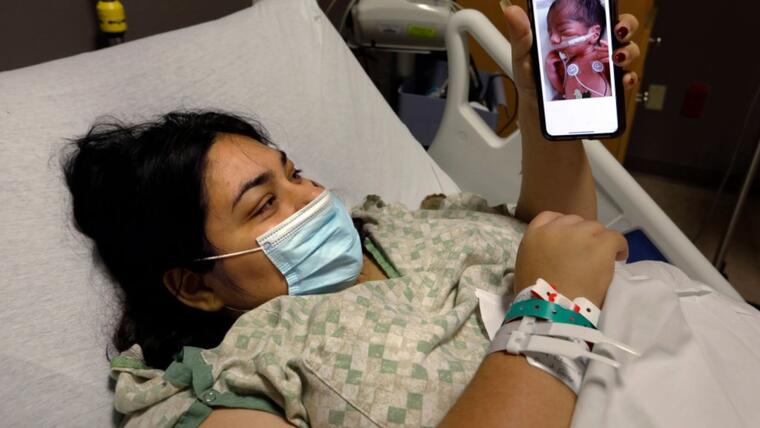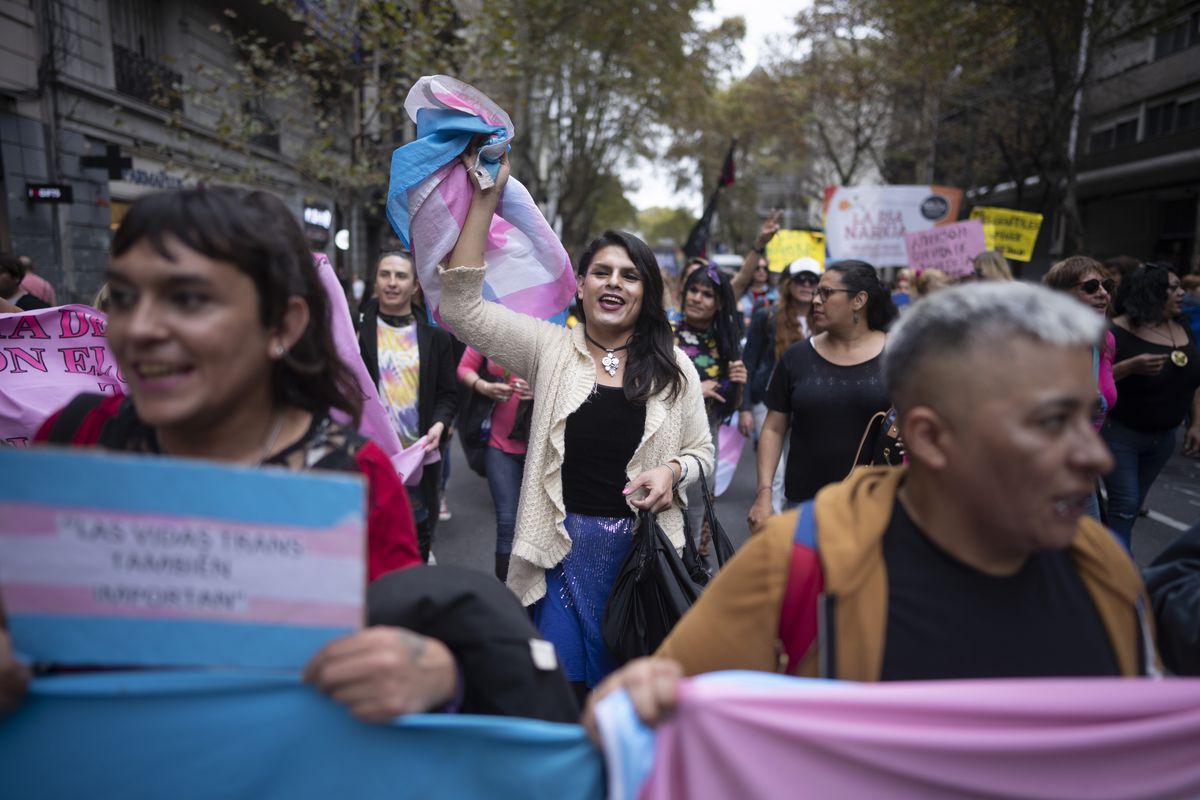By Priscilla Thompson and Alexandra Turcios Cruz -
NBC News
When Brittney Poolaw was in an Oklahoma hospital last year for a miscarriage, she admitted to using methamphetamine during her pregnancy.
Now the woman, who was 19 at the time of her abortion, is in prison, sentenced to four years in October for involuntary manslaughter in the death of her fetus.
Some advocates and medical professionals believe the verdict is in error, warning that the growing trend to prosecute women for their actions during pregnancy is often based on faulty scientific data and
disproportionately affects low-income women. and from the black, Latino and indigenous communities.
The conditions under which the pregnancy of black, Latina and indigenous women is judged are based on racist concepts.Mike Harrington / Getty Images
Lynn Paltrow, founder and CEO of the nonprofit
National Advocates for Pregnant Women
(NAPW), which is working on the Poolaw case, said no one can guarantee a healthy delivery.
"No one can say that something she did or did not do was the cause of that miscarriage," Paltrow said.
"And yet the prosecutor went ahead, the judge allowed it to continue, and the jury - in a very small number of hours - convicted her."
[A federal appeals court allows Texas to continue banning most abortions]
Poolaw's case is part of a broader shift in how women who have miscarriages or deliveries where the fetus or baby has died are prosecuted and judged, prosecutions that advocates say primarily affect Black, Latina, indigenous people and those who live in communities with fewer resources.
Since 1973 when abortion was legalized, 1,600 American women have been prosecuted for their actions during pregnancy, according to NAPW data.
Of those cases, 1,200 occurred in the last 15 years alone.
A Haitian man denounces that an immigration agent from Mexico caused an abortion on his wife after being beaten
Oct. 14, 202101: 26
A 2013 report by NAPW and Fordham University analyzed 413 detentions and forced interventions of pregnant women between 1973 and 2005.
The analysis showed that 71% were considered low-income and 59% were non-white women, of whom 52% were identified as black.
Black women were also much more likely to be accused of serious crimes than white women, with 85% being charged for these types of offenses compared to 71% of white women.
“This whole idea that it is appropriate or plausible to use criminal law to respond to pregnancy and its outcomes was built on the backs of pregnant black women who were portrayed during the heyday of the
crack baby
myth
as mothers. carefree and uncaring, ”Paltrow said.
[Eight keys to understanding why the Texas anti-abortion law and the Supreme Court decision are so controversial]
A 2019 study found that between 2000 and 2015, the number of states enacting laws criminalizing drug use during pregnancy
more than
doubled
, from 12 to 25.
Several medical associations have condemned this type of legislation, including the American Medical Association, which has called for "focusing on increasing access to evidence-based care rather than using punishment and the threat of family separation" for pregnant women and women. parents with a substance use disorder.
In Poolaw's case, an autopsy report obtained by NBC News showed that the fetus, aged 15 to 17 weeks, tested positive for methamphetamine and amphetamine.
It also pointed to a congenital anomaly, a condition that, according to doctors, is usually related to one of the main causes of abortion.
Pregnant women have a 70% higher risk of dying from COVID-19, CDC says
Sept.
30, 202103: 35
"Birth defects are highly associated with genetic abnormalities, and these are the number one reason for miscarriages," said Dr. Sarah Bernstein, a maternal-fetal medicine specialist at Massachusetts General Hospital.
Pinpointing the exact cause of a miscarriage is difficult, even in drug use cases, Bernstein said.
Additionally,
the prenatal death rate for Native American women like Poolaw is nearly 50% higher than that of white women.
[COVID-19: An expert explains how it affects pregnancy, lactation and postpartum]
There is also the question of whether the fetus was a viable human being, since the Supreme Court set the legal age of viability at around 28 weeks.
"There is no evidence beyond a reasonable doubt that the crime she committed
, the methamphetamine possession, caused the death of the fetus," said former US Attorney Joyce Vance, meaning the indictment may be flawed.
The Comanche County district attorney's office, which processed the case, did not respond to a request for comment on the process.
First Latina to Become Harris County Judge in Texas Discusses Greg Abbott's Policies
Oct. 18, 202102: 09
Legal experts and advocates also fear that cases like Poolaw's set a dangerous precedent.
Vance said he believes these types of prosecutions could place unreasonable expectations on women to maintain pregnancies.
"A man runs over a vehicle with a pregnant woman inside, and she aborts the fetus as a result of the accident," Vance said.
"Do you accuse her of murder?"















